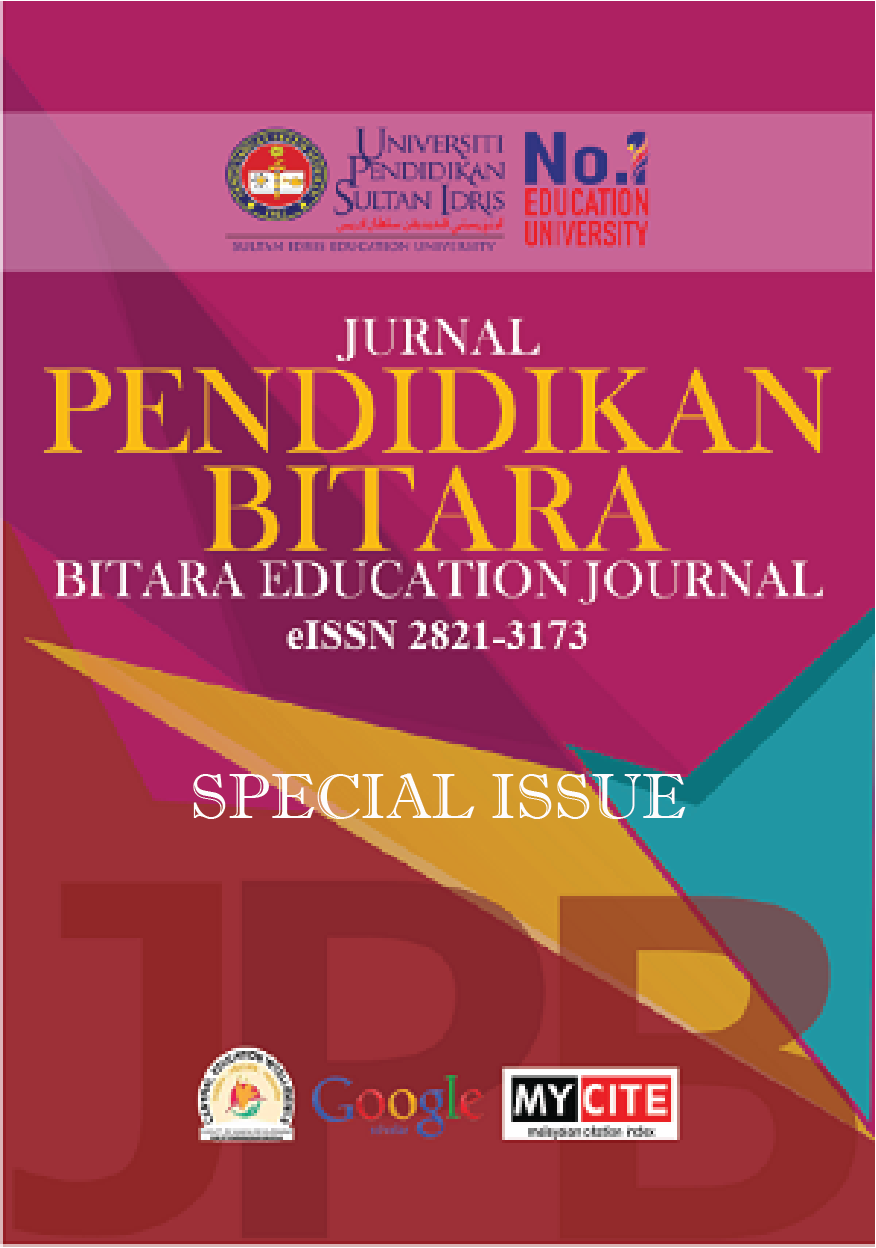Self-Efficacy and Mindset in Students with and without Learning Difficulty
DOI:
https://doi.org/10.37134/bitara.vol17.sp.5.2024Keywords:
learning difficulty, self-efficacy, mindset, after-school programAbstract
Students with learning difficulty that have low self-efficacy and a fixed mindset which might further hinder their performance. This study aimed to investigate the unique characteristic of self-efficacy and mindset for a child with learning difficulty. The study consisted of two mini studies. Study 1 investigated self-efficacy and mindset in 30 primary school students without learning difficulty. Study 2 investigated self-efficacy and mindset in a student with learning difficulty. A research questionnaires and a score record were used in both studies.
Downloads
References
Bergen, A. (2013). Self-efficacy, special education students, and achievement: Shifting the lens. Rivier Academic Journal, 9(2), 1-9.
Brougham, L., & Kashubeck-West, S. (2017). Impact of a growth mindset intervention on academic performance of students at two urban high schools. Professional School Counseling, 21(1), 2156759X18764934. https://doi.org/10.1177/2156759X18764934
Dweck, C. (2006). Mindset: The new psychology of success. New York: Balentine.
Hampton, N. Z. (1996). The relationship of learning disabilities to the sources of self-efficacy, efficacy expectations, and academic achievement in high school students. University of Kentucky.
Hartmann, G. M. (2013). The relationship between mindset and students with specific learning disabilities (Master's study, Humboldt State University).
McCardle, P., Mele-McCarthy, J., Cutting, L., Leos, K., & D'Emilio, T. (2005). Learning Disabilities in English Language Learners: Identifying the Issues. Learning Disabilities Research and Practice, 20(1), 1–5. https://doi.org/10.1111/J.1540-5826.2005.00114.X
Mueller, C. M., & Dweck, C. S. (1998). Praise for intelligence can undermine children's motivation and performance. Journal of Personality and Social Psychology, 75(1), 33–52. https://doi.org/10.1037/0022-3514.75.1.33
Schwarzer, R., & Jerusalem, M. (1995). Generalized Self-Efficacy scale. In J. Weinman, S. Wright, & M. Johnston, Measures in health psychology: A user’s portfolio. Causal and control beliefs (pp. 35-37). Windsor, UK: NFER-NELSON.
Weiner, B., Graham, S., Taylor, S. E., & Meyer, W. U. (1983). Social cognition in the classroom. Educational Psychologist, 18(2), 109-124. DOI:10.1080/00461528309529267
Downloads
Published
Issue
Section
License
Copyright (c) 2024 Wang Hao, Hui Min Low

This work is licensed under a Creative Commons Attribution-NonCommercial-ShareAlike 4.0 International License.





